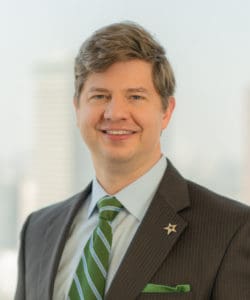Under normal circumstances, the Texas House of Representatives meets for session at noon on the second Tuesday in January of odd numbered years through the last week of May. The governor may call additional “special sessions” that can last up to thirty days. Special sessions occur outside the regular session timeline usually to complete unfinished business or address emergencies.
The House of Representatives is currently in a special session that will last through August 7th for the purpose of reviving an election bill that would impose new parameters on voting. However, a substantial number of Democrat representatives have broken the quorum necessary to vote on the election bill by failing to attend the July 2021 special legislative session. As a result, Governor Greg Abbott is about to call another special legislative session that would begin August 8th and run for an additional thirty days.
As a substantial number of the representatives are trial attorneys, this political fencing has a ripple effect on trial dockets throughout the state. Cases set for trial this summer and early fall involving a representative as counsel or co-counsel may get kicked down the road as a result of these multiple special sessions. Section 30.003 of the Texas Civil Practice and Remedies Code provides the vehicle for these resets through the legislative continuance.
Pursuant to Section 30.003, the trial court must continue a case involving an attorney for a party who is a member or member-elect of the state legislature when the trial conflicts with a legislative session. The legislative continuance is not discretionary except in limited circumstances involving temporary restraining orders or attorneys who are members or members-elect of the legislature that signed onto a case within thirty days of trial.
Section 30.003 is as broad as it is strong; the court must continue a trial that comes within thirty days of a legislative session, before or after the session takes place. When a party moves for a legislative continuance, the court must reset the trial for a setting that is at least thirty days after a legislative session. Additionally, the legislative continuance is a continuance of right and does not count towards a party’s continuances
Litigators and their clients should take heed that the backlog of cases stemming from the pandemic is not the only potential obstacle to having their day in court. The multiple special sessions by of the Texas House of Representatives will result in trial attorneys who are members of the state legislature moving for legislative continuances, even on the eve of trial. In these circumstances, the judges’ hands are overwhelmingly tied. The Section 30.003 legislative continuance is a powerful tool that party’s set for trial late this summer through the early fall must be aware of as it will affect trial dockets across the state.

Francis is a native Houstonian with proven courtroom experience in both civil and criminal courts. Francis routinely represents general contractors, subcontractors, manufacturers, developers, insurance companies, owners and individuals in complex litigation, insurance defense, and worksite accidents. Known for his “straight talk” communication style, Francis is a strategic legal advisor to his clients that prioritizes their business objectives.
Francis has drafted and successfully argued countless motions and taken numerous depositions. He has also obtained successful trial verdicts for his clients, both as a first chair and second chair attorney.